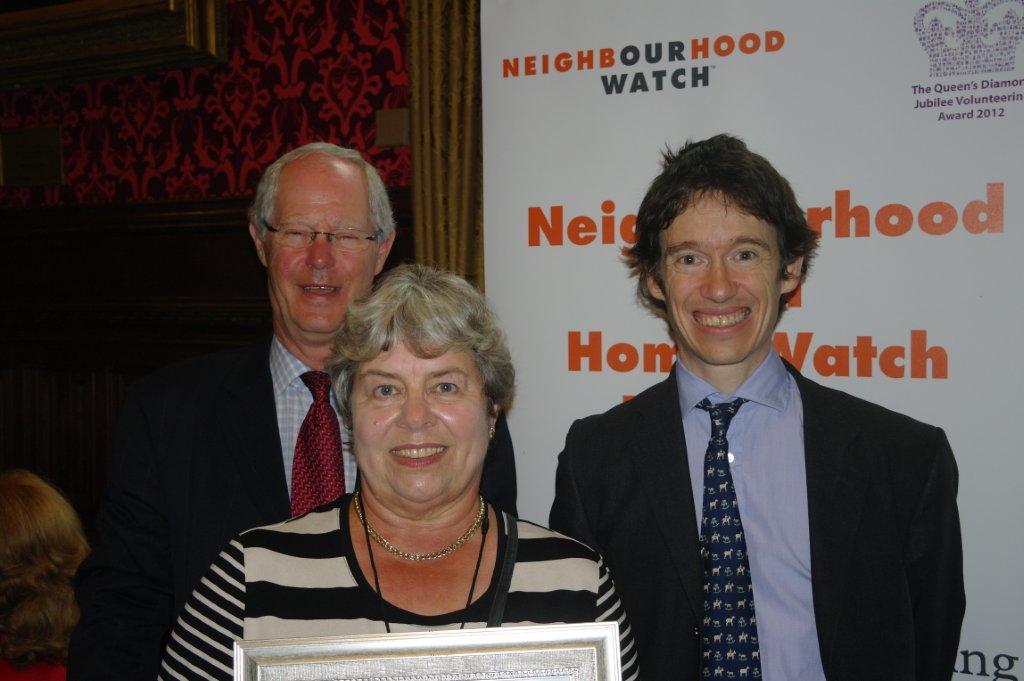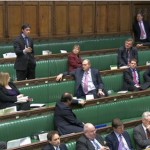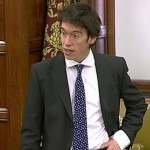Transcript
I thank the hon. Member for Brighton, Pavilion (Caroline Lucas) for securing this debate, and it is a great pleasure to follow the hon. Member for Wrexham (Ian Lucas), who made an extremely moving speech.
I was not in the House for the 2003 vote, and I certainly do not want to focus on it today; I am far from sure that I would have made the right decision. In fact, I think I would have been on the wrong side in 2003. It was not until I was stuck in Iraq in 2003 that I saw what a mess it was. I want to reflect briefly, therefore, on the lessons we might be able to draw, not so much from the decision to intervene, but from the questions about how we got stuck there and why we find it so difficult to acknowledge our failure.
The starting point for any discussion of Iraq has to be an acknowledgment that it was a failure and a scandal. However we look at the costs and benefits of what happened there, it was probably the worst British foreign policy decision since the Boer war or the first Anglo-Afghan war of 1839. Never have the British Government made a worse decision. By that, I do not mean that had I been in the House I would have voted differently. In fact, I suspect that I would have voted in favour of the war, wrongly. I hope, however, that this is an opportunity to reflect on what Parliament is, what the Foreign Office is, what the military is and how Britain as a whole—or at least the British policy establishment—could get something so wrong.
This matters because there are many similarities between what we did in Iraq and what we are doing in Afghanistan, and many similarities between those things and what we occasionally think of doing in Mali or Syria. At the base of the problem is our refusal to acknowledge failure, to acknowledge just what a catastrophe it was, and the House’s refusal to acknowledge how bewildering it was, how little we know and how complicated countries such as Iraq are. Sitting in Iraq for 18 months from the middle of 2003 to 2005, I found myself facing, in a small provincial town called al-Amara, 52 new political parties, many of them swarming across the border from Iran and many of them armed.
Nobody in the Foreign Office or the military, and certainly nobody in the House, would have been able to distinguish between Hizb-e-Dawa, Harakat-Dawa, Majlis Ahla, Hezbollah—which turned out in the Iraqi context to consist of two men with a briefcase—or any of the other Shi’a Islamist groups that emerged. None of us in the British policy machine predicted in January 2005 that 90% of the votes in the south of Iraq would go to only three Shi’a Islamist parties. Everybody in the foreign policy machine then predicted that it would be different at the end of 2005, and we were all wrong again. Why were we wrong? We were wrong because we did not have the right relationship between politicians, diplomats, soldiers and the local reality of these countries. We have not got it right yet.
We have not got it right because it is not realistic today—as it was not realistic at the time of the Boer war or the first Anglo-Afghan war—to expect people in Parliament to be experts on the internal politics of Iraq. What really began to go wrong after the invasion, beyond the decision about WMD, was all to do with micro-relationships in Nasiriyah and al-Amara and in the relationships between the different grand ayatollahs in Najaf. These are not things that anyone in the Chamber, however well briefed, can pretend to understand or judge. Instead, we have to rely on the military, the Foreign Office and the intelligence agencies, and there the problem starts. The problem starts because the entire structure of our organisations—their incentives,their promotions, their recruitment, how they interact with policy makers, politicians and Ministers—does not help us ever to acknowledge failure. In fact, these institutions are designed to trap us in these countries.
Careers are made by people going out for short tours. I remind the House and those in the Foreign Office that the initial tours in Iraq were for six weeks, extended to three months, then to six months. The idea—that people living in heavily defended compounds, moving around in armoured vehicles, generally unable to speak a word of any local language, unable to interact with an Iraqi for more than half an hour or an hour at a time, except if surrounded by heavily armed men and operating through translators, could really get a sense of whether Iraq was stabilising or what, to use the Minister’s words, Iraq would be like in 10 years—was of course misleading. The advice and challenge that they could provide to the Government, therefore, was not good enough.
It is not good enough that not a single senior British diplomat formally recorded on paper their opposition to what was happening in Iraq. Many of those who were inside the system now say that they made private comments, that they were worried, but nobody, from the political director downwards, formally objected on paper to the Prime Minister.
Laura Sandys (South Thanet) (Con): Was that not compounded even further by the American Administration, where if someone questioned what was going on, either strategically or tactically, they were sent back to the states, their future career very much in question?
Rory Stewart: That is a very good point, and perhaps it is a way for me to wrap up my analysis of the Foreign Office. Of course, this is not a uniquely American problem. Within any British civil service Department, there is no great incentive to admit failure. When I look back at the reports I wrote stuck in al-Amara and Nasiriyah, I find it extraordinary how every week, I claimed great success. Every week, I would write, “We’ve hired another 300 people into the police. We’ve held a new sub-district election. I’ve just created 3,000 jobs. We’ve just refurbished another set of clinics and schools.” To read report after report, week after week, it looks as if the whole thing is getting better and better. In retrospect, I know differently, of course. When I began, I could go into the bazaar to get an ice cream, but by the end, I was stuck in my compound with 140 rocket and mortar-propelled grenades flying at the compound, and we had to abandon it and retreat back to a military base, essentially surrendering Nasiriyah, a city of 600,000 people, to the insurgents.
The situation is not helped by the way we talk about it in Britain today. We do not really think very much about Iraq. We do not think very much about what exactly Iraq is doing with Iran or Syria at the moment, why exactly Iraq got involved in dubious banking transactions to bust sanctions on behalf of the Iranian Government or why exactly our great ally, al-Maliki, appears to have been allowing trans-shipment of weapons from Iran into Syria. Why do we not think about these things? It is because we are not very serious. At some level, this country is no longer being as serious as it should be about foreign policy. Our newspapers are not writing enough about Iraq. The Foreign Office is not thinking enough about the failure. The military is not thinking enough about these things. Unless we acknowledge that something went wrong in Iraq and that something went deeply wrong in Afghanistan, we will get ourselves stuck again.
What do we do about it? We need to reform. It cannot be business as usual. We cannot just go around pretending it was all fine. We cannot simply blame Blair and Bush.
Pete Wishart (Perth and North Perthsire) (SNP) : Is not the reason for us going to war in Iraq actually quite simple? Prime Minister Tony Blair had some perverse obligation to George Bush, and that is why we went in.
Rory Stewart: The hon. Gentleman has raised exactly the point that we need to talk about. We believe that somehow it is all the fault of Blair and Bush—this is the myth that has entered the national consciousness. My experience as someone inside the system is that we have to look much more deeply at ourselves. We need to look at the Foreign Office, the military, the intelligence services and Parliament. These people, Blair and Bush, do not operate in a vacuum; they operate in a culture that did not challenge and shape the debate sufficiently. It is not realistic for Blair or Bush to know deeply about these situations and it is simply a constitutional convention, of course, that the people who make the decision are the Blairs and the Bushes. However, if we look at what got us trapped on the ground in Iraq—at why, for example, the right hon. Member for Kirkcaldy and Cowdenbeath (Mr Brown) found it difficult to get out of Iraq or why President Obama found it difficult to say no to the surge—it is because these people are part of a much bigger system.
The reform of that system is threefold. First, we need radically to reform the way in which the Foreign Office operates. The Foreign Secretary has begun; we need to go much further, thinking all the time about the lessons of Iraq and Afghanistan. We need to focus on people with deep linguistic and cultural expertise. We need to ensure that we change all the bureaucratic mechanisms. The core competency framework for promotion in the Foreign Office needs to be changed. The amount that people are paid for learning languages in the Foreign Office needs to be changed. The posting lengths need to be changed. The security conditions for the Foreign Office need to be changed, because unless we begin to understand deeply and rigorously what is happening on the ground, it is difficult to challenge the Blairs and the Bushes.
Caroline Lucas (Brighton Pavilion) (Green): I thank the hon. Gentleman for making such a powerful speech, but when it comes to whether it is right or wrong to blame Bush and Blair, I think he is being a little too generous in his assessment of them. He is giving the impression that they were sitting waiting to hear what the evidence was, when it seems clear—certainly in the case of Bush and maybe in the case of Blair—that they had already made up their minds. They already had an agenda.
Rory Stewart: I am sure that much of that is true. I am not here to defend that decision—it was a terrible, catastrophic decision—but I think it is dangerous to put the whole blame simply on Blair and Bush, because the implication is that if we do not have Blair and Bush around, we will never get in these messes again. We will get in these messes again because we have not created the proper Government policy structures required to think these things through—not just to avoid the decision to invade, but above all to get out more rapidly once we have made a bad decision.
Military reforms—you have very kindly given me some time, Mr Deputy Speaker, but I do not have enough to talk about this today—involve accepting that the military have too much power in the policy debate. That is not the military’s fault: they are filling a vacuum. The military feel that the Foreign Office is not taking the lead and that somebody needs to do something. I saw that all the time on the ground in Iraq. I remember a major-general saying to me, “The diplomats and aid workers aren’t doing anything, so we”—the military—“need to take those things over,” but that is not the military’s job. It is extremely dangerous, because its puts generals in positions where they make optimistic predictions about their capacity to sort things out, albeit without a detailed understanding of the politics or the reality of those aspects of governance or diplomacy.
We in Parliament need to look at ourselves—it is on this that we need to conclude. The hon. Member for Newport West (Paul Flynn) was exactly right to ask us to look hard at how the Select Committee on Defence, the Select Committee on Foreign Affairs and the Intelligence and Security Committee got this wrong. What reforms have we introduced to those Committees to ensure that we do not get it wrong again? How do we as Members of Parliament operate in a very complicated world? It is not realistic for any of us in this Chamber to understand exactly what the difference is between Harakat-Dawa, Hizb-e-Dawa and Hizb-e-Dawa Islamiya. Everybody is learning desperately from briefs, trying to sound plausible, but there are 200 nations in the world. Ministers are busy. Politicians are busy; they are worrying about their constituents. They are not deep experts on these issues. We therefore need to create a system that we can rely on in the Foreign Office, the military and the intelligence services. We in Parliament need to know how to question those people, how to listen to them and how to promote people who disagree with us. We need in Parliament to learn how to look at which civil servants got it wrong and hold them accountable, rather than promoting, as we did, almost everybody who was implicated in the Iraq decisions.
Rory Stewart: I am coming to the end.
Finally, we need above all to learn—I feel, as a new Member of Parliament, and with all deference to this House—a lesson of humility.















